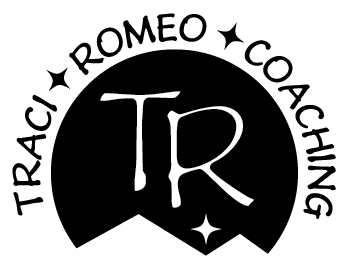Empty Your Cup
In our over-scheduled, high-pressure lives, growth isn't just about cramming in more knowledge, more responsibilities, or more perfection. Sometimes, real growth means cutting back, slowing down, and letting go of that which is no longer working. The Empty Cup Theory is a powerful reminder of this. Picture a teacup filled to the brim. If you keep pouring more tea into it, eventually it spills over; making a mess. This hyper activity can end in missteps, agitation and even burnout. That’s exactly what happens when we try to add more to our already full lives without taking the time to empty the cup, reflect, and reset.
This is true for me and a lot of my friends and colleagues. I arrive at school before sunrise many days, and leave well after the final bell. I carried home piles of grading, planning, and the emotional weight of caring for my students. Add in family responsibilities, staff meetings, continuing education, and the never-ending scroll of social media, and it's easy to see why so many feel constantly on the verge of burnout. The Empty Cup Theory asks us to pause and consider: What’s actually in your cup? And is it serving you?
One of the key messages of this theory is about learning with an open mind. When our mental space is crammed with assumptions, fixed beliefs, or past disappointments, we block new ideas from taking root. It’s like showing up to professional development already convinced it’s a waste of time. You’ll likely miss a valuable insight simply because your mind was already “full.” Teachers, especially, are lifelong learners. But true learning only happens when we make space for it. That means approaching each new experience with curiosity, not cynicism, and the willingness to say, “Maybe there’s something new here for me.”
This is also important, because if our cups are full, we keep adding to them. Listening to podcasts, binging Netflix, engaging in conversations with others… Though all of these things are good, too much can cloud our minds and make it harder for us to learn, absorb and apply the new information that we gain.
But it doesn’t stop at learning. The Empty Cup Theory also speaks to the importance of unlearning. That might sound strange at first, but it’s essential. When I was a young teacher, I thought that rest equaled laziness, and that I had to say “yes” to every extra duty to be seen as dedicated. It was schema like this that greatly contributed to my burnout. Or, what about the parent who believes that taking time for themselves means they’re neglecting their family. I thought this too, for longer than I want to admit. These outdated beliefs and habits fill our mental and emotional cups with guilt, stress, and exhaustion. Unlearning means pausing to ask: Is this belief still helping me grow? And if the answer is no, then we need new beliefs. Letting go isn’t failure—it’s freedom. It clears the way for more empowering habits, healthier boundaries, and renewed purpose.
And then there’s the heart of the metaphor: you can’t pour from an empty cup. So many people, especially in helping professions like teaching, are constantly giving. Giving to students, to colleagues, to families, to their own loved ones. But when was the last time you gave to yourself? Self-care isn’t just bubble baths or spa days. It’s deciding to leave work at work. It’s taking a real lunch break (which I could do more often). It’s saying "no" to yet another committee or volunteer role that does not fulfill you or make you happy, so you can say "yes" to your own peace of mind. Replenishment isn't a luxury, it's a lifeline and of the utmost importance so that we can bring the BEST version of ourselves into the classroom each day.
You don’t have to overhaul your life overnight. But start with this: make space in your cup. Breathwork, or even just sitting still with no input (music, tv, scrolling) has been monumentally helpful for me. Unlearn something that no longer serves you. For me, it is practicing good enough and stopping each lunch, rather than plowing through the day, ignoring my needs in the name of balance, rather than burnout and agitation. Let yourself rest without guilt. If you are fatigued, rest. If you want to watch a show to relax, make a deal with yourself to complete the task after, but remember, KEEP YOUR COMMITMENT to yourself. Watching tv or resting with guilt is just going to expend more energy and tire you even more.
When you prioritize emptying your cup, and when new opportunities or insights come your way, you’ll have room to hold them. And when you do this, your cup won’t spill over slowing your down, creating more messes, and taking you longer to do simple tasks. As a result, you will move beyond survival mode and thrive.
So again I ask, what’s in your cup?
